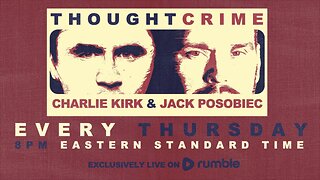Family Blames COVID Vaccine for Daughter’s Death - Fox News 23 Investigates (2.19.24)
BROKEN ARROW, Okla. — Trista Martin was described as a really funny girl who worked really hard.
Her mother, Taylor Martin said “she was a little spit fire. She was not really afraid of anyone or anything.”
Her dad, Allen Martin, told FOX23 News Trista was a beautiful girl who was so full of life and joy, more than anybody he'd ever known.”
Trista graduated from Broken Arrow High School in 2022. That summer she was promoted to a management position at her local Braum’s. She was an active girl who walked her dogs and worked out with her older sister. Trista planned to go to college and her parents said she had a heart for helping others.
"After she passed,” Taylor said, “we found a bucket list that she had made when she was 16."
“Yeah, adopt a teenager, number 28," Allen read from the list. "Number 29, be a foster parent. Number 27, be a mother."
"That one gets me every time,” Taylor said. “A gut punch."
The dreams on Trista’s bucket list will never come true. She died on Nov. 9, 2022. This was twelve days after her parents believe she got her second COVID vaccine.
Trista Martin
They found her vaccination card from her first appointment in her purse after she died. It showed she received the first Pfizer shot July 20, 2022. Her parents had no idea she had gotten the shot.
While Trista still lived at home, as an 18-year-old, she decided it was time to get her own doctor and make her own medical decisions. Her parents said Trista’s previous doctor was a close family friend and she wanted more privacy moving forward.
Taylor said Trista told them she made the first appointment for a checkup and to establish care. Allen said they didn't find out Trista got the vaccine until the day she died in the hospital.
The Martins told FOX23 they were not against the vaccine at the time, but with it being new and the family having some immunity from experiencing COVID, they felt they didn’t need it.
Taylor described what happened the day Trista died.
“She just woke up on that morning, Nov. 9, and said, 'I'm having trouble breathing,'" Taylor explained. "She was at a friend's house. She said I'm having trouble breathing and my whole entire body hurts. And she just went to go try and lay down. She thought she could like sleep it off.”
“She was tough,” Allen added.
“She thought she was just getting sick or something,” Taylor said. “And then her sister went to check on her and couldn't get her to wake up. And that's when they called me, and I rushed over there. And by the time I got there, she was no longer breathing. And I did start CPR and it was a complete shock.”
Allen said nothing prior to this incident pointed toward her possibly dying.
Taylor described performing CPR on her daughter as, “something that will never leave me.”
At Saint Francis Hospital, Trista’s health continued to decline.
Allen said there were so many people at the hospital trying the best they could to help their daughter.
“Saint Francis, they were amazing,” Taylor added. “They really were. They had the like, the heads of every department down there. They had people on the phone that weren't at work that day trying to figure out what was going on.”
“And they just couldn't,” Allen said.
“He said, ‘Well, I don't know what's causing it,’” Taylor described, “but you know her kidneys are failing.”
Allen said the doctors told them Trista’s toxicology came back clean. She tested negative for COVID and they didn't know what was going on.
“But all of her organs were shutting down, her heart was swollen,” Allen said. “And they were putting in a lot of fluids, but nothing was coming out.”
Taylor said the doctor told them if they were to do CPR on Trista again, it would kill her. She said they found out later that paramedics had to continue CPR in the ambulance, that Trista crashed multiple times on the way to there.
The Martins described their final moments in the hospital.
“Someone coming to you and asking you to make a decision whether to let your child die or not. I mean, it is. It's unreal. Like it's just… It's unreal,” Taylor said. “And of course we were like, please continue to try.”
“But don’t kill her,” Allen said. “At 5:05, she was gone.”
“It's the worst thing in the entire world,” Taylor said with tears in her eyes.
“I remember thinking, okay what do I have to do?” Allen said through tears. “I have to, I have to hold her hand because I'm not going to do that ever again. I have to kiss her forehead. I got to give her a hug, I've got to smell her hair because whatever you need to get done, you got to do it right now because it's your last shot.”
The couple said they learned Trista received the COVID vaccine from one of her friends when they were at the hospital.
“One of her friends said, ‘I think I should probably tell you guys this, you know that she got the COVID vaccine, and she told us not to tell you,'" Taylor explained. "And we were just kind of like, you know, I wish she wouldn't have done that, or I wish she would have told us.”
“But it was like, surely there's no way," Allen said.
“That's not what's doing this,” Taylor added.
“That was our initial thought,” Allen shared. “There's no way that's what's doing this. The whole world, they're pushing this shot on everybody, there's no way this is what did it.”
A couple of weeks after Trista’s passing, they said they started researching COVID vaccine reactions.
“I think this might be what killed her," Taylor said.
"Things they said in the hospital, things we knew,” Allen said. “The swollen heart, myocarditis.”
“The failure,” Taylor added. “Her glucose level was 610.”
“Six hundred and ten, yeah,” Allen said. “And she wasn't diabetic at all.”
“They could not figure it out,” Taylor said.
Allen said Trista suffered from multiple system organ failure. He said they found other people online around the world describing similar reactions to the vaccine.
“In a way, it was a little comforting to know that we weren't alone. But at the same time, it was just terrifying. Because it's, I mean, it's, they're still pushing it.”
The Centers for Disease Control and Prevention (CDC) recommends COVID-19 vaccination for everyone ages 6-months and older in the United States.
A Vaccine Information Statement is given to patients by their healthcare provider when they get the shot. (Download PDF)
On the back, section 4, details risks of a vaccine reaction. It describes pain, swelling or redness where shot is given. It also lists myocarditis (inflammation of the heart muscle) and pericarditis (inflammation of the lining outside the heart) as seen rarely but observed most commonly in males 12 to 39 years old.
The chance of this occurring is described as low on the statement sheet. It goes on to warn of a “very remote chance of a vaccine causing a severe allergic reaction, other serious injury, or death.”
When FOX23 contacted Pfizer to ask about myocarditis being caused by the COVID vaccine, the company sent the following response:
"Pfizer recognizes that there may be rare reports of myocarditis after mRNA COVID-19 vaccination. According to the CDC and other health authorities, this is an extremely rare side effect and only an exceedingly small number of people will experience it after vaccination. Based on ongoing safety reviews performed by Pfizer, BioNTech and health authorities, Comirnaty retains a positive benefit-risk profile.”
FOX23 turned to Dr. Dale Bratzler for answers. To be clear, he never treated Trista Martin nor reviewed her medical records.
He served as the Chief COVID Officer for OU Health throughout the pandemic. He is currently the Dean of OU’s Hudson College of Public Health.
“Any childhood death is a tragedy,” Dr. Bratzler said. “None of us like to think about that and as a parent, I can't even imagine the pain of losing a child."
He added, “most people who do get myocarditis, it tends to be mild and don't have to be hospitalized."
In an image from Mayo Clinic, a typical heart muscle is pictured at the top. And at the bottom is myocarditis. The inflammation can reduce the heart’s ability to pump blood. It can cause chest pain, shortness of breath and rapid or irregular heart rhythms.
"It's an autoimmune reaction where their body develops antibodies that can attack the heart muscle and cause this inflammation of the heart,” Dr. Bratzler said. “There's no way to predict it to my knowledge at this point. It's not common, it's actually pretty rare but with anything that happens to the heart, it can be very serious obviously."
Dr. Bratzler said if you or a family member experience those symptoms you should contact your doctor right away.
He said viruses, like COVID-19, are one of the main causes of myocarditis. He said you are more likely to develop it from the virus than from the vaccine.
Dr. Bratzler shared a comprehensive article published in “Circulation Research” in May 2023. It was funded in part by the National Institutes of Health (NIH), the American Heart Association (AHA) and the Mayo Clinic.
It found 150 cases of myocarditis reported for every 100,000 people with COVID vs. 1-10 cases reported for every 100,000 people who received the vaccine.
“I've highlighted before that there are probably medications that people take as a matter of routine, that have, if you look at the side effect and complication profile, are much greater than the vaccines that are currently recommended," Dr. Bratzler said
He feels the COVID infection does more harm to someone than the COVID vaccine and recommends people get vaccinated. He also said it’s a conversation you should have with your doctor to determine what is right for you and your family.
The Martins said not enough information is out there about adverse reactions. They point to recent Pfizer commercials that do not include any warnings about side effects or adverse reactions.
One commercial featuring Martha Stewart opens with her sharpening a sword. The words on the bottom of the screen read, “Do Not Attempt.” There is no description of possible side effects or adverse reactions to the vaccine or the booster shot she’s promoting. By comparison, commercials for other drugs made by Pfizer, including a vaccine against pneumonia, does include a warning about possible side effects.
The Martins said they hit one road block after another trying to get Trista’s medical records from her doctor.
Being told to, “stop calling,” Allen said. “'Your daughter wasn't a patient here.’ We found the text messages in her telephone confirming the appointments. And a part of the of the discovery that we got, there is a blank page where she went in on Oct. 28, 12 days before she died.”
They also said they’ve had little luck on social media posting about their experiences and concerns about the vaccine.
“We can't post our story anywhere except for Twitter because it gets taken down,” Allen said.
Taylor added, “You get put in Facebook jail if you talk about it.”
“I've had accounts removed. I had been suspended,” Allen said.
That’s one of the reasons they took part in the “Shot Dead” documentary that explores adverse reactions and deaths reportedly from the COVID vaccine.
In the documentary by We The Patriots USA, one father named Ernest Ramirez who lost his son, Ernesto Junior, said another parent took his son and a friend out for the afternoon.
“She took them to the park and he took off running across the parking lot and collapsed," Ramirez explained in the documentary.
In the documentary, Cardiologist Dr. Peter McCullough described reviewing Ernesto's autopsy.
“I believe the autopsy is conclusive for cause of death being COVID-19 vaccine induced myocarditis,” McCullough said.
The producers of the documentary told FOX23 Facebook blocked the documentary from being posted and YouTube took it down. You can watch it on their website, here.
The Martins said it took eight months to get Trista’s autopsy from the Oklahoma Office of the Chief Medical Examiner.
It listed complications with Trista’s heart, lungs and blood among other things. Part of her medical history shows recent Coronavirus vaccination. It does not show myocarditis as the parents said they heard doctors describe at the hospital. Ultimately, it shows Trista’s manner of death to be “Undetermined.”
In Trista’s room, her ashes are in a butterfly-decorated urn with a blanket wrapped around it.
“It's really weird to think that that's your child in there,” Taylor said. “But we come in and talk to her and say things. She didn't like to be cold so we have her wrapped in her blanket that she made. She made the blanket in Home Ec. out of old t-shirts and stuff.”
The Martins find comfort in Trista’s room and strength to be her voice to warn others about their experience.
The Tulsa City County Health Department sent FOX23 the following statement when asked about reports of myocarditis being reportedly linked to the COVID vaccine:
“The loss of any human life is a tragedy, and the Tulsa Health Department expresses condolences to the family. THD encourages parents and guardians to have open conversations with their child's health care providers about the risks and benefits of vaccination to make informed decisions. Based on the recommendation of the CDC, THD offers COVID-19 vaccinations for everyone aged 6 months and older. The benefits of COVID-19 vaccination continue to outweigh any potential risks, including myocarditis. All clients who receive any vaccine from THD nurses receive the vaccine information statement containing information about both the benefits and risks of a vaccine, including how to report side effects. We strongly encourage individuals to discuss any concerns with their healthcare providers. ”
The Oklahoma Chapter of the American Heart Association sent FOX23 the following information:
"The American Heart Association sends its deepest condolences to the family referenced.
The American Heart Association is a leading public health organization with primary expertise in heart and brain health. The Association adheres to the guidance of the U.S. Centers for Disease Control and Prevention (CDC), the nation’s infectious disease leader, urging everyone who is eligible to get the COVID-19 vaccine and all recommended boosters. The COVID-19 vaccines available in the U.S. have been approved by the U.S. Food and Drug Administration, with detailed 2024 information available here.
The current available scientific data suggests that the side effects of the COVID-19 vaccines have proven to be minimal and far outweigh the greater risks associated with COVID-19 infection. COVID-19 vaccination is recommended for as many people as possible as essential to protect public health, save lives and prevent other serious health conditions that may result from COVID-19 infection. Based on the latest scientific evidence, the vaccines remain the best available protection against the COVID-19 virus for all of us and our loved ones.
According to the CDC, myocarditis after COVID-19 vaccination is rare. When it does occur, it is usually seen in adolescent and young adult males within 7 days of receiving the second dose of the mRNA vaccine. The CDC does note that cases of myocarditis have been observed in others, such as females, people in other age groups and after other doses of the COVID-19 vaccine. The CDC continues to monitor the Vaccine Adverse Event Reporting System (VAERS) and regularly updates information here.
The American Heart Association/American Stroke Association recommends all health care professionals be aware of rare adverse events that may be related to a COVID-19 vaccine including myocarditis. Health care professionals should strongly consider inquiring about the timing of any recent COVID vaccination among patients presenting with symptoms related to cardiovascular conditions, as needed, in order to confirm the diagnosis and to provide appropriate treatment quickly. As indicated by the CDC, we agree that cardiologists should be consulted if myocarditis or any heart-related condition is suspected by a primary care clinician.
The Association cannot diagnose individual medical cases. Without detailed medical records about the young woman’s medical history or extenuating circumstances, it is difficult to ascertain if she developed myocarditis due to the COVID-19 vaccine (which appears highly unlikely given the duration of time from vaccination; acute symptoms usually appear within 7 days) or if it was caused by a viral infection including COVID-19, or if myocarditis was the cause of death or if another health condition was a cause. More research on myocarditis in children and young adults is needed to strengthen and refine diagnosis and treatment, particularly after COVID-19 infection and including possible association with mRNA vaccines.
The American Heart Association is a relentless force for a world of longer, healthier lives. We are dedicated to ensuring equitable health in all communities. Through collaboration with numerous organizations, and powered by millions of volunteers, we fund innovative research, advocate for the public’s health and share lifesaving resources. The Dallas-based organization has been a leading source of health information for a century. During 2024 - our Centennial year - we celebrate our rich 100-year history and accomplishments. As we forge ahead into our second century of bold discovery and impact, our vision is to advance health and hope for everyone, everywhere.
Important background information about myocarditis:
It is an inflammation of the heart muscle that may be caused by a viral infection or a diverse array of infectious or non-infectious causes.
Myocarditis caused by a virus is more often seen in children than in adults, and children are more likely to have acute myocarditis (sudden onset) rather than chronic myocarditis, which is more typically seen in adults.
The most common symptoms of myocarditis in children include fatigue, shortness of breath, abdominal pain and fever. (Of note, the primary symptom reported in patients with COVID-19 vaccine-associated suspected myocarditis is chest pain.) However, it is important to consider alternative causes of these symptoms since none of them are specific to cardiovascular conditions including myocarditis.
Acute myocarditis can deteriorate rapidly, therefore, close monitoring in hospital should be considered.
Acute myocarditis may lead to myocardial injury similar to a heart attack.
Myocarditis may also be seen secondary to systemic autoimmune diseases and is associated with rheumatic fever or Kawasaki disease. In these cases, treatment should be according to the guidance for the primary condition.
Regular cardiology follow-up, including ECG, echocardiography and laboratory tests are recommended every 1-3 months after onset, and then as needed.
Source: Diagnosis and Management of Myocarditis in Children: A Scientific Statement of the American Heart Association, published July 7, 2021.
The July 2021 AHA Scientific Statement details the latest evidence about the causes, symptoms and treatment options for myocarditis, and specifics about possible myocarditis associated with a COVID-19 vaccine, specifically citing:
The data indicate the benefits of getting the vaccines outweigh the risk of potentially developing vaccine-associated myocarditis. For example, for every 1 million doses of the mRNA COVID-19 vaccines in males ages 12 to 29 years (the highest risk group for vaccine-associated myocarditis), it is estimated that 11,000 COVID-19 cases, 560 hospitalizations and 6 deaths would be prevented, whereas 39 to 47 cases of myocarditis would be expected.
Another AHA Scientific Statement, SARS-CoV-2 Infection and Associated Cardiovascular Manifestations and Complications in Children and Young Adults, published in April 2022, reviewed the data on the epidemiology, pathophysiology, symptoms, treatment and outcomes after COVID-19 infection and including myocarditis, multisystem inflammatory syndrome in children and young adults, as well as the potential for vaccine-associated myocarditis.
The statement details that myocarditis and pericarditis, presenting with chest pain and high troponin levels typically seen 2 to 6 days after receipt of an mRNA COVID vaccine in young people, have been reported to the Vaccine Adverse Event Reporting System (VAERS).
The mechanisms of myocarditis and pericarditis associated with mRNA COVID-19 vaccines are unknown at this time; the reasons for male predominance in these cases are also unknown.
The benefits of the COVID-19 vaccines outweigh the risks of rare myocarditis/pericarditis temporally association with COVID-19 vaccines.
COVID-19 vaccination is still recommended to curb the pandemic, but active efforts are underway to investigate potential long-term effects of myocarditis associated with COVID-19 vaccination.
In addition, the most recent scientific studies about myocarditis, published in the AHA’s peer reviewed research journals:
Myocarditis after COVID-19 vaccines remain rare, highest risk in young males | American Heart Association (September 2022)
Myocarditis risk significantly higher after COVID-19 infection vs. after a COVID-19 vaccine | American Heart Association (August 2022)"
The Martins created a website in Trista's honor and their efforts to make a difference. Visit that site here. https://www.justicefortrista.com/
h/t https://rumble.com/v4euuyc-fox23-news-family-blames-covid-vaccine-for-daughters-death.html
-
 6:11
6:11
Truths Unlimited
13 hours agoCONQUERING AMERICA? Islamic Leader Declares Muslim Domination of U.S. - WHO WINS? CHINESE OR MUSLIMS? THEY WANT MORE THAN A PIECE of us - THEY WANT OUR WHOLE COUNTRY!
1.27K5 -
 42:22
42:22
The Why Files
3 days agoProject Looking Glass | The Time Warriors of the 2012 Apocalypse
83.4K86 -
 1:36:46
1:36:46
Roseanne Barr
6 days ago $212.98 earnedFor Love of Country with Tulsi Gabbard | The Roseanne Barr Podcast #50
226K672 -
 1:47:41
1:47:41
The Charlie Kirk Show
8 hours agoTHOUGHTCRIME Ep. 48 — Trump Rally Aftermath + Pride Month + "White Fortressing"?
88.9K33 -
 2:15:48
2:15:48
Laura Loomer
8 hours agoEP52: THE GREAT REPLACEMENT: Trump and Biden Spar Over Border Policies Ahead of First Presidential Debate
52.1K27 -
 1:29:23
1:29:23
Kim Iversen
9 hours agoJournalists Critical of Israel Fired and Threatened With Arrest! | What Is “Scholasticide” In Palestine?
74.5K109 -
 2:01:58
2:01:58
Melonie Mac
11 hours agoGo Boom Live Ep 6
51.3K13 -
 1:21:32
1:21:32
Game On!
9 hours agoStanley Cup Finals: Oilers vs Panthers Series Preview
41.9K5 -
 1:15:28
1:15:28
Precision Rifle Network
1 day agoGuns & Grub S2E7
40.5K5 -
 2:23:00
2:23:00
Donald Trump Jr.
15 hours agoLIVE WITH RUSSELL BRAND | TRIGGERED Ep.143
167K253